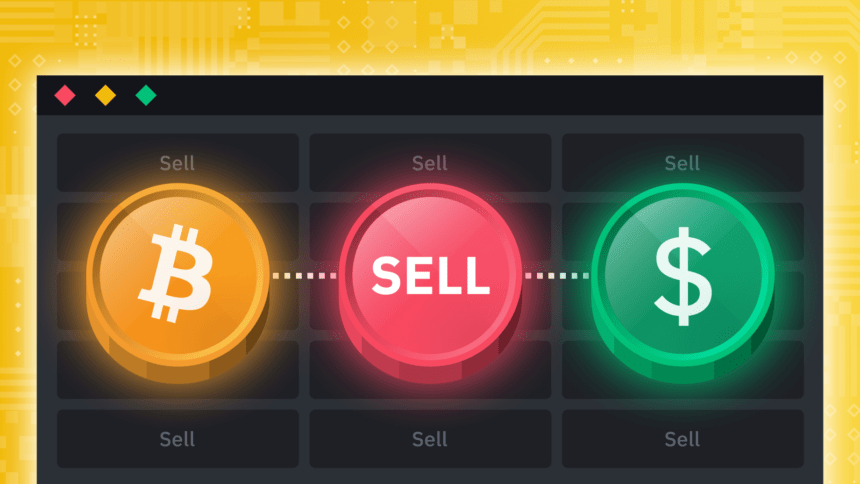Cryptocurrency has emerged as a prominent part of the financial world, with thousands of people participating in the buying and selling of digital assets. Whether you are a beginner or a seasoned investor, understanding how to buy and sell cryptocurrency safely is essential. This guide will walk you through the steps and precautions to take in order to protect yourself and your investments while navigating the world of cryptocurrency.
1. What is Cryptocurrency?
Cryptocurrency is a form of digital or virtual currency that uses cryptography for security. Unlike traditional currencies issued by governments, cryptocurrencies operate on decentralized platforms, primarily through blockchain technology. The most popular cryptocurrencies include Bitcoin, Ethereum, Litecoin, and more, but there are thousands of different digital coins available in the market.
2. Why Buy Cryptocurrency?
Many people choose to buy cryptocurrency for investment purposes. Others see it as a hedge against inflation or a way to diversify their financial portfolios. The decentralized nature of cryptocurrencies also appeals to those who value privacy and control over their finances. Additionally, the potential for high returns in the rapidly evolving crypto market attracts many investors.
3. Risks Involved in Buying and Selling Cryptocurrency
While cryptocurrency offers exciting opportunities, it is not without its risks. The price of digital currencies can be highly volatile, and there is always the chance of losing your investment. Moreover, there are security concerns, with hackers targeting exchanges and wallets. It’s important to take these risks into account when deciding whether or not to buy cryptocurrency.
4. How to Buy Cryptocurrency Safely
a. Choose a Reputable Exchange
The first step in buying cryptocurrency safely is selecting a trustworthy exchange platform. Well-known exchanges like Coinbase, Binance, and Kraken are widely used for their security measures, ease of use, and variety of available coins. Always do your research before choosing an exchange to ensure it meets your needs and has a solid reputation.
b. Use Two-Factor Authentication (2FA)
Two-factor authentication adds an extra layer of security to your exchange account. By enabling 2FA, you require a second form of verification—such as a code sent to your phone—whenever you log in or make a transaction. This helps prevent unauthorized access to your account.
c. Use a Secure Wallet
When buying cryptocurrency, it’s crucial to store it in a secure wallet. There are two types of wallets: hot wallets and cold wallets. Hot wallets are connected to the internet, while cold wallets are offline, offering an extra layer of protection. If you plan to hold significant amounts of cryptocurrency, it’s recommended to store your funds in a cold wallet for enhanced security.
d. Be Wary of Scams
Cryptocurrency is a hotbed for scams, and fraudsters are constantly coming up with new ways to trick people. Be cautious of any offers that sound too good to be true, such as guaranteed high returns or unsolicited investment opportunities. Always verify the legitimacy of the platforms you use and the people you interact with.
5. How to Sell Cryptocurrency Safely
Once you have acquired cryptocurrency, you may want to sell it for profit or convert it into fiat currency. The process of selling cryptocurrency is similar to buying it, but there are some additional steps and precautions to keep in mind.
a. Choose a Trusted Platform for Selling
Just as with buying cryptocurrency, selling your digital assets requires choosing a secure platform. Many of the same exchanges you use for purchasing cryptocurrency also allow you to sell your holdings. Ensure that the platform you use is reputable and supports the type of cryptocurrency you wish to sell.
b. Withdraw Funds to Your Bank Account
After selling your cryptocurrency, you will need to transfer the proceeds to your bank account. Most exchanges allow you to withdraw fiat currency directly to your account. Before initiating a withdrawal, check the fees associated with the process and ensure that you are complying with your local tax laws.
c. Use Secure Methods for Peer-to-Peer Transactions
If you decide to sell cryptocurrency directly to an individual, it’s crucial to use secure methods of payment. Peer-to-peer (P2P) platforms like LocalBitcoins and Paxful facilitate direct transactions between buyers and sellers, but you should only deal with verified users. Make sure to use escrow services provided by the platform to ensure that the transaction is secure and that neither party is at risk of being scammed.
d. Avoid Selling on Unregulated Platforms
Selling cryptocurrency on unregulated platforms can expose you to significant risks. Unregulated exchanges and marketplaces may lack the necessary security protocols to protect your funds, making them more vulnerable to fraud and hacking attempts. Always stick to regulated platforms that provide transparent transaction histories and reliable customer support.
6. How to Protect Your Investments
Whether you’re buying or selling cryptocurrency, protecting your investment is key to ensuring long-term success in the digital asset market.
a. Diversify Your Portfolio
As with any investment, it’s wise to diversify your cryptocurrency holdings. Instead of putting all your funds into one digital coin, consider spreading your investments across several assets. Diversification can reduce the risk of losing everything if one asset’s value drops sharply.
b. Set Up Alerts for Price Changes
The cryptocurrency market is known for its price volatility, and sudden market movements can lead to significant profits or losses. Many exchanges and wallet apps offer alert systems that notify you when the price of a particular coin reaches a certain threshold. Setting up these alerts can help you make timely decisions about when to buy or sell cryptocurrency.
c. Monitor the Market
Keeping an eye on the market trends and news can help you stay informed about potential changes that could impact the value of your cryptocurrency holdings. Websites like CoinMarketCap, CoinGecko, and others provide real-time data, market analysis, and expert insights to help you make informed decisions.
d. Stay Informed About Regulatory Changes
Cryptocurrency regulations are still evolving worldwide, and changes in government policy can affect the market. It’s important to stay up-to-date on the latest legal developments in the cryptocurrency world, especially those that may affect your ability to buy, sell, or hold your digital assets.
7. When is the Right Time to Buy and Sell Cryptocurrency?
The timing of when to buy or sell cryptocurrency can be critical to your success in the market. Timing the market perfectly is challenging, as it’s influenced by a variety of factors, including news, investor sentiment, and overall market conditions.
a. Buy Cryptocurrency in a Market Dip
While it’s impossible to predict the future, many investors aim to buy cryptocurrency when the market is experiencing a dip in prices. By purchasing when prices are lower, you position yourself to potentially make a profit when the market rebounds. However, it’s important to do thorough research and not make decisions based solely on short-term price fluctuations.
b. Sell Cryptocurrency When Prices Are High
When the price of your cryptocurrency has increased significantly, it may be time to sell and lock in your profits. Some investors follow a “buy low, sell high” strategy, taking advantage of market peaks. Be cautious, however, as prices can quickly reverse, and what seems like a high price may not be sustainable.
8. Sell Cryptocurrency
Buying and selling cryptocurrency can be a rewarding experience if done properly, but it requires knowledge, caution, and the right tools to ensure safety. By choosing reputable platforms, securing your investments, and staying informed about market trends, you can minimize the risks involved in the process. Always be prepared to learn and adapt, as the world of cryptocurrency is constantly evolving.
Whether you’re looking to buy cryptocurrency for the first time or want to sell your holdings for profit, following these guidelines will help you navigate the market confidently. Remember, the key to success in cryptocurrency is making informed decisions and managing your risks carefully.

